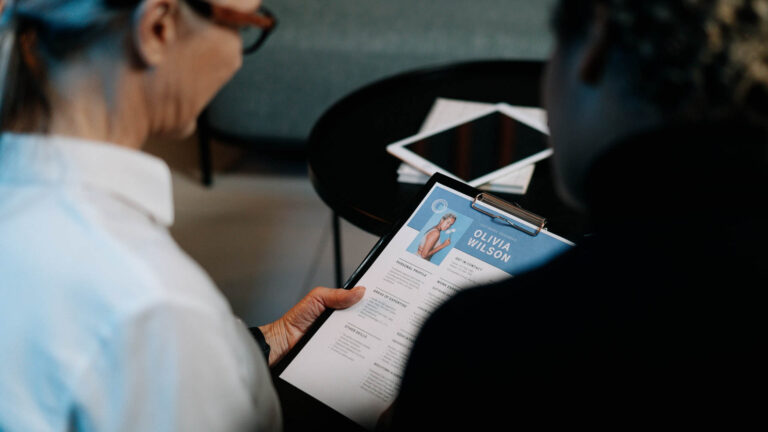Mobile phlebotomy is a critical aspect of modern healthcare that plays a significant role in providing quality patient care. A mobile phlebotomist is a trained medical professional who is responsible for drawing blood from patients either at their homes, workplaces or other locations outside of a medical facility.
Definition of a Mobile Phlebotomist
As the name suggests, a mobile phlebotomist provides in-home, on-site or mobile blood collection services to patients. The service is vital as it allows patients who cannot access medical facilities to receive blood tests from the comfort of their homes or offices.
Overview of the Job Description and Key Responsibilities
A mobile phlebotomist’s job description includes traveling to patients’ locations and performing blood draws, labeling, processing, and transporting specimens for testing. They must be able to collect samples for analysis, operate medical equipment such as centrifuges, and ensure that specimens are properly stored and shipped to the appropriate laboratory.
In addition, a mobile phlebotomist must maintain accurate documentation and patient confidentiality, conduct themselves in a professional manner when interacting with patients and medical staff, and provide excellent customer service.
Importance of Mobile Phlebotomist in the Healthcare Industry
The role of a mobile phlebotomist has become increasingly critical in the healthcare industry as the demand for home-based and mobile medical services continues to grow. Mobile phlebotomists are particularly important for patients with mobility challenges, chronic or acute illnesses, or those who live far from medical facilities.
Mobile phlebotomy services enable patients to receive their blood tests promptly, conveniently and efficiently, and this can ultimately improve patient outcomes. Mobile phlebotomists also help to reduce overcrowding in medical facilities, reduce the risk of infection, and improve access to vital medical care.
Mobile phlebotomists provide an essential service that enhances the delivery of healthcare services to the community. With a focus on providing quality care and excellent customer service, mobile phlebotomy professionals are in great demand, and the profession offers a rewarding career for those interested in working in the healthcare industry.
Education and Training Requirements
Aspiring Mobile Phlebotomists must have a high school diploma or equivalent to apply for this role. Along with this, they must have some relevant post-secondary education like a certificate or associate degree in phlebotomy is preferred. Additionally, they should have excellent knowledge of the techniques and procedures involved in blood collection.
Accredited Programs for Mobile Phlebotomists
Many educational institutions offer programs for phlebotomy training, which typically last a few months. While selecting a training program, it’s essential to ensure that it’s accredited by the National Accrediting Agency for Clinical Laboratory Sciences (NAACLS), the Accrediting Bureau of Health Education Schools (ABHES), or the Commission on Accreditation of Allied Health Education Programs (CAAHEP).
Training and Certification
Mobile Phlebotomists must undergo specialized training to learn how to collect blood samples safely and effectively. The training program may involve both theoretical and practical courses and covers topics like human anatomy, physiology, medical terminology, and blood collection methods.
Upon completion of the training program, aspiring Mobile Phlebotomists must obtain certification from an accredited certifying agency, like the American Society of Phlebotomy Technicians (ASPT) or the National Phlebotomy Association (NPA). Certification typically requires passing a written exam and demonstrating proficiency in collecting blood samples.
Becoming a Mobile Phlebotomist requires a high school diploma or equivalent, relevant post-secondary education, specialized training, and certification. Aspiring Mobile Phlebotomists must ensure that they attend an accredited training program and obtain certification from an accredited certifying agency to further their career prospects.
Skills Required for Being A Mobile Phlebotomist
A career as a mobile phlebotomist requires a combination of technical, organizational, and interpersonal skills. In this section, we will discuss the three main sets of skills necessary for success in this field.
Communication and Interpersonal Skills
Mobile phlebotomists interact with patients on a daily basis, so excellent communication and interpersonal skills are essential. They must have the ability to put patients at ease, explain the procedure in a clear manner, and address any concerns or questions they may have.
It’s important for mobile phlebotomists to possess an empathetic and compassionate demeanor, as they may encounter patients who are anxious or scared. They must also be able to work well with fellow professionals in a team setting, including laboratory technicians and physicians.
Technical Skills
Mobile phlebotomists must have a strong understanding of the technical aspects of drawing blood, including blood collection devices, antiseptics, and proper labeling and handling of samples. They must be knowledgeable about a wide variety of blood collection techniques and be able to perform venipuncture on patients of all ages, genders, and health conditions.
A mobile phlebotomist must also be able to recognize, troubleshoot, and address any issues that may arise during the blood-drawing process, such as complications due to vein size, position, or patient movement.
Organization and Time Management
As a mobile phlebotomist, you will be working with multiple patients and healthcare professionals on a daily basis. Therefore, the ability to stay organized and manage your time effectively is crucial.
Mobile phlebotomists must maintain accurate records of blood samples, labeling, and transport to ensure the proper identification and handling of specimens. Additionally, they must prioritize and manage their time effectively to accommodate patient needs and ensure all appointments and collections are completed in a timely and efficient manner.
Becoming a successful mobile phlebotomist requires a combination of technical, interpersonal, and organizational skills. With the right knowledge, training, and attitude, you can build a rewarding career in this field.
Types of Procedures You Perform
As a mobile phlebotomist, your work involves collecting blood samples from patients. You may be working in a hospital, clinic, or even in home care settings. Here are some of the types of procedures that you may perform:
Blood Draw Techniques
The most important part of your job is to collect blood samples from patients. You should be skilled in selecting the right vein for each patient and using the correct technique to collect the blood. Different patients may require different types of needles, so you will need to be familiar with a variety of types and sizes.
To collect the blood, you will need to use a tourniquet to stop the blood flow briefly, clean the area with antiseptic, and insert the needle into the vein. You will need to pay attention to the flow of blood and monitor the patient for any adverse reactions. Finally, you will need to remove the needle, apply pressure and bandage the site.
Sterilization and Safety Precautions
As a phlebotomist, you have to maintain a clean and sterile environment to prevent the spread of infections. You will need to follow safety protocols to protect yourself and your patients from accidents and contamination.
You will need to keep all your supplies sterile and dispose of them properly. You will also need to use gloves and masks to prevent contact with bodily fluids and airborne particles. Depending on your facility’s policies, you may need to wear additional protective gear such as gowns, face shields, or goggles.
Handling of Blood Samples
After collecting the blood samples, you will need to handle them with care to prevent contamination or damage. You will need to label the tubes correctly with patient information and maintain proper storage conditions.
Some blood samples may need to be transported to a laboratory for testing. In such cases, you will need to know how to package and ship them properly, following regulatory requirements. You will need to maintain a chain of custody for the samples and ensure timely delivery to the laboratory.
Work Environment and Job Settings
Working as a mobile phlebotomist requires flexibility when it comes to work schedule since patients may require blood testing during non-traditional work hours. Phlebotomists must be comfortable working on-call or during weekends since patients who require lab work or blood samples may need testing done promptly.
Mobile phlebotomists work in various settings, including hospitals, clinics, laboratories, and nursing homes. Each setting brings a distinct work environment that may require adaptation from the mobile phlebotomist. For instance, in hospitals, phlebotomists must be comfortable working in a fast-paced, high-stress environment since patients in the hospital require blood testing more urgently. In contrast, in clinics, phlebotomists will need to work closely with doctors, nurses, and other healthcare personnel, communicating test results and facilitating patient care.
For mobile phlebotomists specializing in nursing homes, patience and empathy may be essential skills since many of the residents have mobility or cognitive challenges that require unique accommodations. The professional must be familiar with the equipment needed to support these vulnerable individuals and ensure that they maintain their human dignity throughout the testing process.
As with any profession, work-life balance is critical to maintaining optimal health and wellness. Mobile phlebotomists should prioritize self-care and ensure that they take the time to engage in activities outside of work, including hobbies, exercise, and socializing with friends and family. It may be challenging to maintain an active personal life since the phlebotomist often requires being “on-call” for patients, but effective time-management and stress-reduction techniques can help maintain an optimal work-life balance.
Working as a mobile phlebotomist requires a flexible schedule, adaptability to various work settings, and an emphasis on work-life balance. Maintaining good health and wellness is essential to provide the best care for patients, and mobile phlebotomists must prioritize their personal well-being to perform optimally.
Compensation and Salary Range
Working as a mobile phlebotomist provides competitive compensation for those who possess the necessary skill set and qualifications. The salary range for a mobile phlebotomist varies depending on factors, such as the type of healthcare or laboratory organization, location, educational background, experience, and certifications.
Hourly or Annual Salary
The salary range for a mobile phlebotomist can be based on an hourly rate, typically ranging from $15 to $30 per hour or a yearly salary ranging from $25,000 to $60,000 per year. As an entry-level phlebotomist, hourly rates would range from $11 to $15, while more experienced phlebotomists can earn a similar hourly wage but with additional benefits, such as paid time off, insurance, and retirement plans.
Benefits and Perks
In addition to the hourly or annual salary, mobile phlebotomists may receive various benefits and perks, such as health insurance, paid vacation leave, sick leave, and 401k or retirement plan. For full-time mobile phlebotomists, healthcare organizations often provide additional benefits, such as dental and vision, and prescription drug plans. Part-time or contract-based phlebotomists may not receive as many benefits.
Factors Affecting Salary Range
The salary range for a mobile phlebotomist can be affected by several factors, such as region, education, experience, demand, and certification. For instance, phlebotomists in larger urban areas or regions with a higher cost of living may earn a higher salary compared to those in rural areas. Moreover, those with higher levels of education, such as certified phlebotomy technicians, tend to earn more and have higher advancement opportunities than those with just a high school diploma. Furthermore, those with experience, skills, and additional certifications, such as Basic Life Support or Basic Cardiac Life Support, may increase their earning potential.
The compensation and salary range for mobile phlebotomists varies depending on several factors. According to the Bureau of Labor Statistics, the job outlook and employment of phlebotomists are projected to grow in the coming years, increasing the need to hire more phlebotomists and driving up compensation rates. Becoming a mobile phlebotomist is an excellent career option for those seeking flexible schedules and competitive compensation.
Job Outlook and Prospects
The demand for mobile phlebotomists is expected to increase in the coming years due to the aging population and the rise in chronic diseases. Mobile phlebotomists are essential in the healthcare field as they collect blood and other specimens that doctors use to diagnose diseases and monitor patients’ health.
According to the Bureau of Labor Statistics (BLS), employment of phlebotomists is projected to increase 25 percent from 2016 to 2026. This growth rate is much faster than the average for all occupations. The projected job growth is attributed to the aging population, which requires more medical services, and advancements in medical technology that require more testing and analysis.
Furthermore, the COVID-19 pandemic has highlighted the need for mobile healthcare services. With social distancing measures in place, many patients prefer to receive healthcare services in their homes. Mobile phlebotomists can visit patients and collect specimens in the comfort of their homes, reducing the need for patients to go to healthcare facilities for blood tests.
As healthcare becomes more patient-centered, more healthcare services are expected to become mobile. This shift means that job prospects for mobile phlebotomists are promising. Mobile phlebotomists can work for hospitals, clinics, laboratories, or as self-employed professionals. Many mobile phlebotomists work on a freelance basis, allowing them to work for multiple clients and earn a higher income.
With advancements in technology, mobile phlebotomists may need to adapt to new ways of collecting and analyzing blood samples. For example, wearable technology and telemedicine could revolutionize the way healthcare services are delivered. Remote monitoring devices could allow healthcare providers to collect data from patients and analyze it remotely, reducing the need for in-person visits.
To succeed in the future job market, mobile phlebotomists will need to stay updated on industry trends and keep their skills up-to-date. They should consider continuing education and certifications to expand their career opportunities. Employers are likely to prefer candidates with advanced qualifications and experience.
The demand for mobile phlebotomists is expected to continue growing in the upcoming years. Mobile phlebotomists can take advantage of this trend by improving their skills and adapting to new industry changes. The job market for mobile phlebotomists is promising, and professionals in this field can expect a fulfilling career with steady demand and ample opportunities for growth.
Work Experience and Career Advancement
As a mobile phlebotomist, you have a variety of career opportunities available to you. Depending on your experience and career stage, you may be able to advance into other roles within the healthcare industry or move up within the mobile phlebotomy profession.
Early Career Stage
If you’re just starting out as a mobile phlebotomist, you’ll likely be focused on building your skills and experience. You may work for a laboratory or healthcare provider, or you may be self-employed. Some common tasks at this stage include:
- Collecting blood and other samples from patients
- Ensuring samples are properly labeled and stored
- Maintaining accurate records of patient information
- Communicating with patients and healthcare providers
- Upholding safety and sanitation standards during procedures
At this stage, your earning potential may be somewhat limited, but you can expect to gain experience and build contacts in the industry. This can be valuable for future job opportunities or advancement within your current role.
Mid-Career Stage
With several years of experience, you may be able to take on more advanced roles within the mobile phlebotomy industry. You may choose to become a traveling phlebotomist, working with patients in different locations or even different states. You may also be able to take on supervisory or management roles, overseeing a team of phlebotomists or laboratory technicians.
Some of the tasks you may be responsible for at this stage include:
- Training new phlebotomists or healthcare providers on proper collection techniques
- Developing and implementing procedures to improve patient outcomes and safety
- Analyzing and interpreting lab results
- Engaging in quality assurance and quality control activities
At this stage, you may also see a significant increase in your earning potential.
Late Career Stage
As you approach retirement age, you may choose to decrease your work hours or fully retire from the profession. Alternatively, you may choose to move into consulting or teaching roles, sharing your experience and knowledge with a new generation of phlebotomists.
Some of the tasks you may undertake at this stage include:
- Writing articles or textbooks on phlebotomy techniques and best practices
- Consulting with laboratory managers or healthcare providers to improve patient outcomes
- Teaching phlebotomy courses at universities or vocational schools
At this stage, your earning potential may start to level off or decrease somewhat, but you can still make a meaningful impact in the industry and inspire future generations of healthcare professionals.
The mobile phlebotomy profession offers a variety of career paths and opportunities for advancement. By building your skills and experience, you can move up within the profession, take on more advanced roles, and make a meaningful impact in the lives of patients.
Challenges and Risks Associated
As with any job that involves interacting with patients and handling medical equipment, there are inherent challenges and risks that mobile phlebotomists must be aware of and prepared to manage. Some of the most significant of these include safety hazards, potential risks, and manageable challenges.
Safety Hazards
One of the most critical risks for mobile phlebotomists is exposure to potential safety hazards while on the job. This includes things like needlestick injuries, exposure to infectious diseases, and accidents while driving to and from appointments. To mitigate these risks, mobile phlebotomists must be rigorously trained with the proper techniques and safety protocols for drawing blood, handling hazardous materials, and preventing accidents in transit.
Mobile phlebotomists must also take care to maintain a sterile environment when conducting blood draws. This means wearing gloves, sanitizing equipment, and disposing of used materials in a safe and appropriate manner.
Potential Risks
Beyond safety hazards, mobile phlebotomists must also be aware of other potential risks associated with their profession. These include things like patient reactions to blood draws, such as fainting or seizures, as well as exposure to chemical hazards from cleaning agents or medical supplies.
To manage these risks, mobile phlebotomists must be well trained in patient care and communication skills. They must be able to quickly recognize and respond to any adverse reactions or emergencies that may arise during or after a blood draw.
Manageable Challenges
Finally, mobile phlebotomists must also be prepared to handle various manageable challenges associated with their job. These might include scheduling conflicts, travel logistics, and communication issues with patients or healthcare providers.
To manage these challenges, mobile phlebotomists must be skilled in time management, organization, and effective communication. They must be able to balance their workload, maintain accurate records, and communicate clearly and effectively with patients and healthcare providers alike.
While there are definitely challenges and risks associated with being a mobile phlebotomist, with proper training, preparation, and skill, these can be effectively managed and mitigated. For those who are passionate about providing high-quality mobile phlebotomy services, this profession can be a fulfilling and rewarding career choice.
Ethics and Professionalism
As a mobile phlebotomist, it’s important to adhere to ethical standards and maintain professionalism at all times to ensure the safety and well-being of your patients. Here are some key aspects of ethics and professionalism to keep in mind:
Code of Ethics
Every profession has a code of ethics that outlines the values and principles that its members should uphold. As a mobile phlebotomist, you must abide by the professional and ethical standards set by the National Phlebotomy Association (NPA) and maintain high levels of integrity, honesty, and confidentiality in every interaction with patients.
The NPA’s code of ethics emphasizes the importance of respecting patients’ rights, maintaining patient confidentiality, seeking ongoing education and training to stay up to date with best practices, and maintaining accurate records. By adhering to these ethical principles, you can contribute to a culture of trust and respect in the healthcare industry.
Professionalism and Etiquette
As a mobile phlebotomist, you will meet patients from all walks of life who may be dealing with health issues or feeling vulnerable. It’s important to approach every encounter with a professional and respectful demeanor.
Professionalism and etiquette are closely linked, and both are important to maintain a positive and professional image. This includes arriving on time, dressing appropriately, and communicating clearly with patients and healthcare providers.
In addition, being polite, respectful, and courteous in your interactions with patients can help put them at ease and make the experience less stressful. Using appropriate language, maintaining eye contact, and explaining procedures in language that the patient can understand are all critical aspects of maintaining professionalism and etiquette as a mobile phlebotomist.
Responsibility and Accountability
As a mobile phlebotomist, you are responsible for ensuring the safety and well-being of your patients. This includes following established safety procedures, properly labeling and handling blood samples, and communicating effectively with patients and healthcare providers.
Maintaining accountability is also important. This means taking responsibility for any errors or mistakes that occur and taking proactive steps to rectify the situation. It also means being willing to ask for help or support when necessary and seeking ongoing education and training to improve your skills and knowledge.
By prioritizing responsibility and accountability, mobile phlebotomists can contribute to a culture of safety, trust, and respect in the healthcare industry.
Ethics and professionalism are critical aspects of the mobile phlebotomist profession. By upholding the NPA’s code of ethics, maintaining professionalism and etiquette in your interactions with patients, and prioritizing responsibility and accountability, you can make a positive impact on the lives of patients and contribute to a culture of safety and professionalism in the healthcare industry.
Example Workday of Mobile Phlebotomist
As a mobile phlebotomist, your workday can include a variety of tasks that revolve around collecting blood samples from patients. Your main objective is to obtain blood specimens in a safe and efficient manner, while ensuring proper documentation and compliance with sanitation and safety protocols.
Job Description of a Typical Mobile Phlebotomist
A mobile phlebotomist is responsible for traveling to patient locations to collect blood specimens, such as in their homes, workplaces, or healthcare facilities. They interact with a diverse group of patients, from adults to children and the elderly, and must possess excellent communication and interpersonal skills.
Aspects of the job may include verifying patient information, preparing the collection site, drawing blood, processing specimens, labeling and packaging samples, and submitting specimens to laboratory facilities. Mobile phlebotomists may also be responsible for maintaining equipment and inventory, as well as keeping records and following up with patients as necessary.
Schedule and Activities
The schedule of a mobile phlebotomist can vary depending on their employer and location. Some may work part-time or on-call, while others may have a full-time schedule that involves travel to multiple locations throughout the day. Being flexible and adaptable to different environments can be an important quality for a mobile phlebotomist.
On a typical workday, a mobile phlebotomist can expect to spend the majority of their time traveling to and from patient locations, interacting with patients, and collecting blood samples. They may need to handle various challenges throughout the day, such as navigating traffic or dealing with difficult patients. Efficiency and time management are crucial skills for a mobile phlebotomist, as their workload can vary and unforeseen circumstances may arise.
Opportunities and Challenges
While working as a mobile phlebotomist can be rewarding, it also comes with unique opportunities and challenges. One potential benefit is the ability to work independently and autonomously, without direct supervision. This can allow for greater flexibility and control over one’s work schedule and routine, as well as the opportunity to develop strong relationships with patients.
On the other hand, mobile phlebotomists may face challenges such as safety concerns, particularly when collecting samples from unfamiliar or high-risk environments. Additionally, the physical demands of the job, such as standing for long periods or transporting heavy equipment, can be demanding. Mobile phlebotomists must also be well-versed in handling and disposing of biohazardous materials to prevent the spread of disease.
In terms of career growth, mobile phlebotomists can explore opportunities to expand their skills and knowledge, such as becoming certified in additional phlebotomy techniques or pursuing leadership roles within their organization. Working as a mobile phlebotomist can be a fulfilling and dynamic career choice for those who enjoy working with people and value flexibility and independence in their work.



